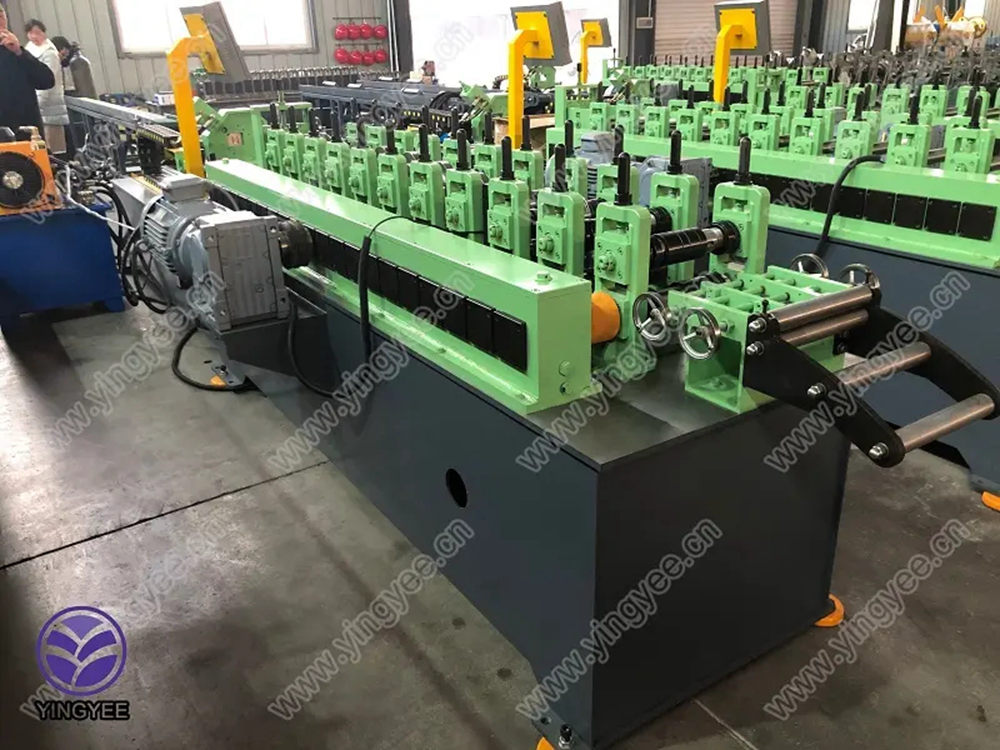
The Importance and Evolution of Drywall Forming Machines
In the construction industry, efficiency and quality are paramount, especially when it comes to the production of drywall, also known as gypsum board or plasterboard. Drywall forming machines have revolutionized the way drywall is manufactured, streamlining the process and ensuring consistency. As the demand for housing and commercial buildings continues to rise, so does the need for advanced manufacturing technologies that support this growth.
What is a Drywall Forming Machine?
A drywall forming machine is a specialized piece of equipment used to produce drywall in large quantities. The machine automates the process of mixing raw materials, forming the gypsum core, wrapping it in paper, and cutting it to size. This automation not only enhances production efficiency but also significantly reduces labor costs and error rates.
Typically, a drywall formation line consists of multiple components working in synchronization. These include a mixer for combining gypsum and water, a conveyor system for transporting the mixture, forming and cutting stations, and packaging equipment. The entire process is meticulously designed to maintain high standards of quality and to reduce waste, which is crucial in today’s environmentally conscious market.
Technological Advancements
Over the years, the technology used in drywall forming machines has evolved rapidly. Early machines were primarily mechanical, relying on manual input for adjustments and settings. However, with advancements in automation and robotics, modern machines are equipped with sophisticated control systems that allow for precise adjustments in real-time. These systems can monitor variables such as temperature, humidity, and the consistency of the gypsum mixture, ensuring optimal production conditions.
Additionally, the integration of artificial intelligence (AI) and machine learning algorithms has further improved the efficiency of drywall forming machines. These technologies can analyze production processes and provide recommendations for energy savings, maintenance scheduling, and quality control, thus minimizing downtime and maximizing output.

Environmental Considerations
The production of drywall has traditionally been associated with significant environmental concerns, particularly regarding gypsum extraction and the energy-intensive manufacturing processes. However, modern drywall forming machines address these issues by optimizing resource use and minimizing waste. Manufacturers are increasingly adopting eco-friendly materials and practices, such as recycling scrap drywall and using renewable energy sources for production.
Furthermore, advancements in machine technology have led to the development of more energy-efficient machinery. For instance, machines that utilize electric motors instead of hydraulic systems consume less power and produce fewer emissions. This shift not only benefits the environment but also results in cost savings for manufacturers.
The Future of Drywall Forming Machines
As the construction industry continues to evolve, so too will drywall forming machines. The demand for lightweight, durable, and sustainable building materials is pushing manufacturers to innovate. Future machines may incorporate advanced materials and modular designs, allowing for greater flexibility and customization based on specific project needs.
Moreover, the rise of digitalization in manufacturing—often referred to as Industry 4.0—will influence the development of drywall forming machines. Smart factories will utilize connected devices to monitor and optimize production processes continuously, leading to enhanced efficiency and reduced operational costs.
Conclusion
In conclusion, drywall forming machines are a cornerstone of modern construction practices, significantly impacting how drywall is manufactured. The evolution of these machines, driven by technological advancements and environmental considerations, underscores the importance of efficiency and sustainability in the construction industry. As we look to the future, the ongoing innovations in drywall forming technology will play a crucial role in meeting the demands of a rapidly growing market while promoting eco-friendly practices. As a result, drywall forming machines will not only facilitate the construction of buildings but will also contribute to a more sustainable and resilient future.